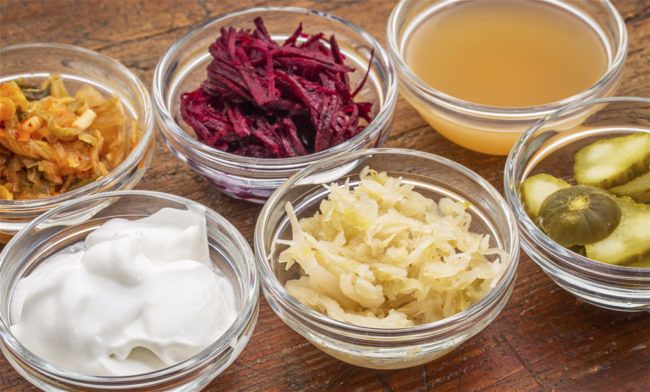When you think of bacteria, you probably think of the bad kind — those pesky germs that bring illness. But not all bacteria are bad.
In fact, your gut is filled with what we’ll call “good” bacteria. This type of bacteria helps protect your body against harmful, illness-causing bacteria, and helps the digestive system run effectively.
When the balance of bacteria in the body becomes lopsided in favor of bad bacteria, you may experience all sorts of stomach-related issues, including diarrhea, bloating and excess gas. This can happen due to stress, certain medications or poor nutrition. How can you make sure the good guys stay in control?
Two different kinds of foods can help you maintain control of your body’s bacteria balance. Read on to learn more.
Probiotics: The source of good bacteria
If you’ve been prescribed an antibiotic recently, your doctor may have recommended you eat yogurt while taking the medication. Why is that exactly? Well, yogurt is one source of probiotics, which help replenish the good bacteria in your body.
The purpose of antibiotics is to wipe out the bad bacteria that are causing a bacterial infection. But while they fight the bad bacteria, they also often rid the body of some of its good bacteria. That’s why yogurt — and probiotics — becomes important.
Even those who are healthy can benefit from eating foods containing probiotics. These foods include:
- Fermented soft cheeses, like Gouda
- Fermented vegetables, like sauerkraut
- Kefir (a fermented, yogurt-like drink)
- Miso (a fermented soybean paste)
- Tempeh (fermented soybean patty)
- Yogurt with “live and active cultures”
If none of these foods are a frequent part of your diet, you can also take probiotic supplements. Talk with your doctor about whether a supplement might be right for you and what type he or she would recommend.
Prebiotics: The food source for probiotics
You’ve heard of probiotics. But you may be wondering what the heck a “prebiotic” is. To put it simply, prebiotics help probiotics thrive.
Prebiotics are a type of non-digestible fiber, and they’re found in a variety of foods, including:
- Apples
- Asparagus
- Bananas
- Garlic
- Greens
- Legumes
- Oatmeal
- Onions
These fibers help feed the good bacteria in your body and help probiotics work effectively. This means they help improve digestive health and enhance your immune system, among other positive effects.
In fact, they may even do more than was thought previously. A recent study published in the journal Frontiers in Behavioral Neuroscience found that eating prebiotic-rich foods can help promote good bacteria in the gut and restore normal sleep patterns after a period of stress.
Feeling like bad bacteria have taken over your body? Your doctor can help diagnose the source of your illness and get you back to feeling better. Find a doctor here.






